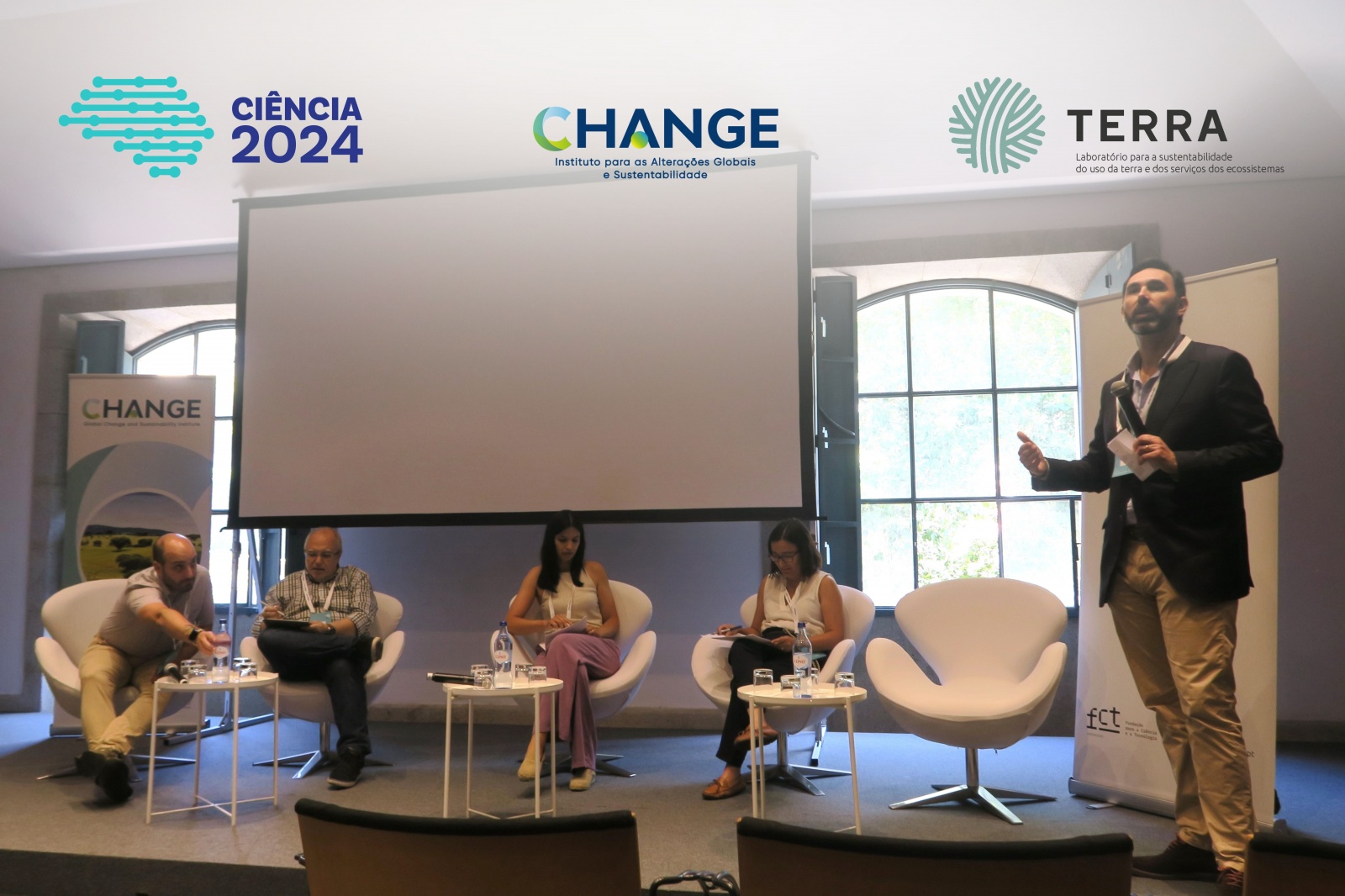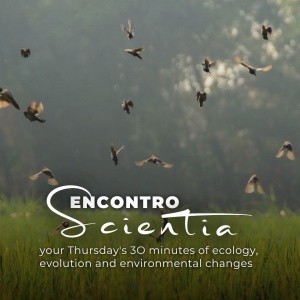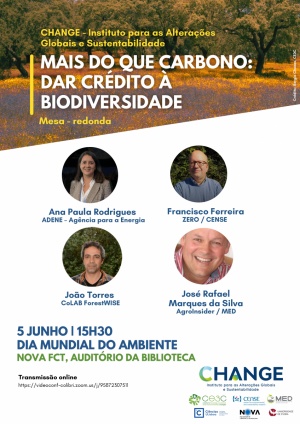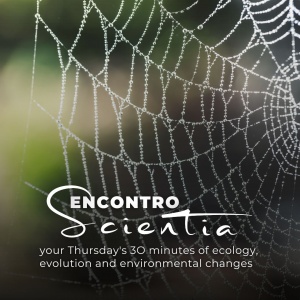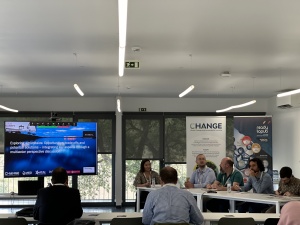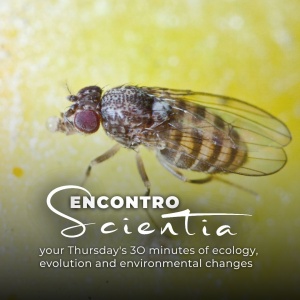[English below]
Os desafios do acesso aos dados para conhecer melhor os solos em Portugal e a necessidade de um acordo sobre os indicadores a recolher para este fim foram algumas das principais questões discutidas na mesa-redonda “Saúde do solo: A base para os ecossistemas, a regulação do clima e a segurança alimentar”. A sessão temática, organizada em conjunto pelo CHANGE e pelo TERRA no Encontro Ciência 2024 realizou-se no passado dia 5 de julho na Alfândega do Porto.
A sessão contou com uma introdução de Paulo Branco, do TERRA, e uma mesa-redonda, moderada por Susana Filipe, do MED & CHANGE, com a participação de Carlos Guerra, da Universidade de Coimbra, Paula Guedes, do CENSE & CHANGE e José Paulo Sousa, CFE, Universidade de Coimbra e Laboratório Associado TERRA.
“Há muita informação que é necessário juntar, construir uma base de dados sobre o estado do solo e o seu uso”, realçou Paula Guedes, sublinhando a importância desta ferramenta para desenvolver estratégias de mitigação da degradação dos solos. Carlos Guerra, da Universidade de Coimbra realçou que há muita informação, mas muito regionalizada. “Não temos capacidade de síntese e não temos dados de hoje. Há muita informação, não significa que existam dados”, afirmou.
Além da necessidade de se saber mais sobre os solos em Portugal, os participantes também sublinharam a necessidade de se encontrar uma forma comum de recolher estes dados. “Indicadores químicos, físicos, geológicos, devem ser implementados. Todos os indicadores são possíveis e devem estar em cima da mesa, escolhidos caso a caso, dependendo sobretudo da escala”, afirmou José Paulo Sousa.
“Nós estamos todos a tentar preservar uma coisa que é muito importante, mas que não é nossa, é de milhares de pessoas”, afirmou Carlos Guerra. Cerca de 40 mil amostras são recolhidas por ano em Portugal, mas são privadas. Nós não temos acesso a estes dados”, concluiu, apontando um dos principais desafios para obter conhecimento sobre os solos em Portugal, em comparação com o caso da água ou do ar, que são públicos.
A importância de obter dados sobre os contaminantes em solos agrícolas, do nexo solo-água, a necessidade de haver mais intercomunicação entre agências para haver mais partilha e interligação de informação assim como o papel dos Laboratórios Vivos, foram também discutidos.
(Notícia publicada em www.changeinstitute.pt)
_______________________________________________________________________________
Session organized by CHANGE and TERRA at Encontro Ciência 2024 highlights challenges in accessing soil data and the need for agreement on indicators
The challenges of accessing data to better understand soils in Portugal and the need for an agreement on the indicators to be collected for this purpose were some of the main issues discussed at the round table "Soil Health: The foundation for ecosystems, climate regulation, and food security." The thematic session, jointly organized by CHANGE and TERRA at Encontro Ciência 2024, which took place on July 5th at Alfândega do Porto.
The session featured an introduction by Paulo Branco, from TERRA, and a round table moderated by Susana Filipe, from MED & CHANGE, with the participation of Carlos Guerra, from the University of Coimbra, Paula Guedes, from CENSE & CHANGE, and José Paulo Sousa, from CFE, University of Coimbra and TERRA.
"There is a lot of information that needs to be gathered to build a database on the state of the soil and its use," emphasized Paula Guedes, highlighting the importance of this tool for developing strategies to mitigate soil degradation. Carlos Guerra from the University of Coimbra stressed that there is a lot of information, but it is very regionalized. "We lack synthesis capacity, and we do not have current data. Having a lot of information does not mean we have data," he stated.
In addition to the need to know more about soils in Portugal, the participants also emphasized the need to find a common way to collect this data. "Chemical, physical, and geological indicators should be implemented. All indicators are possible and should be on the table, chosen case by case, depending mainly on the scale," stated José Paulo Sousa.
"We are all trying to preserve something that is very important, but it does not belong to us, it belongs to thousands of people," said Carlos Guerra. About 40,000 samples are collected annually in Portugal, but they are private. "We do not have access to these data," he concluded, pointing out one of the main challenges in obtaining knowledge about soils in Portugal, compared to water or air, which are public.
The importance of obtaining data on contaminants in agricultural soils, the soil-water nexus, the need for more intercommunication between agencies to increase information sharing and linkage, as well as the role of Living Laboratories, were also discussed.
(News published at www.changeinstitute.pt/en)
Tags: CHANGE Encontro Ciencia 2024 solos mitigaç ã o indicadores

